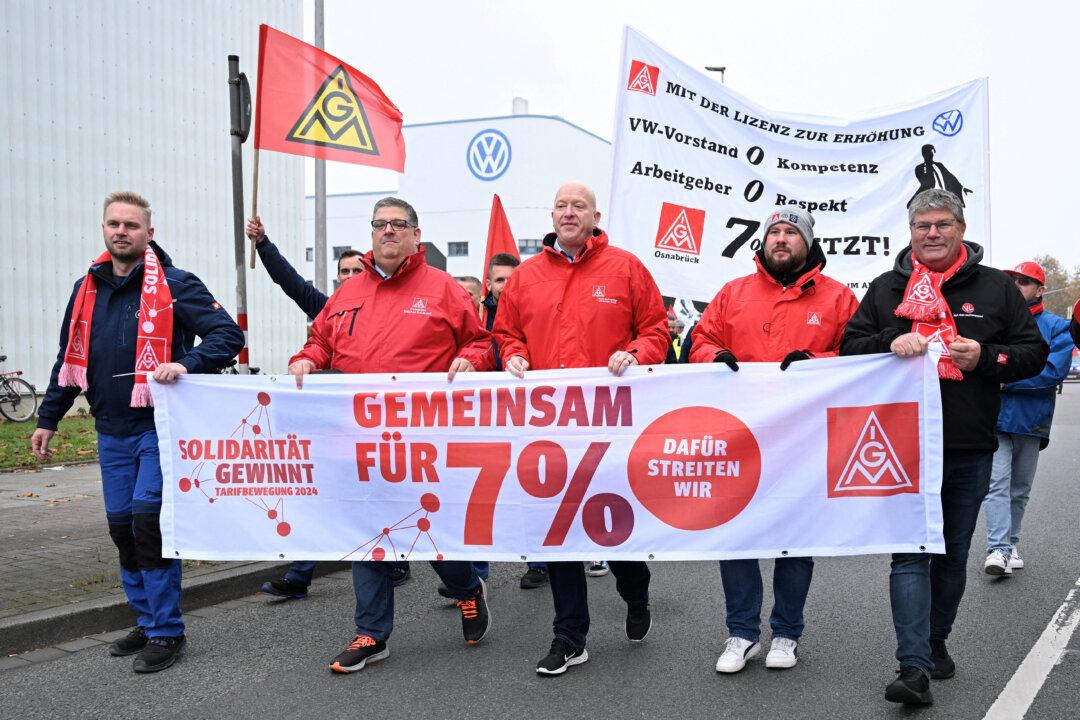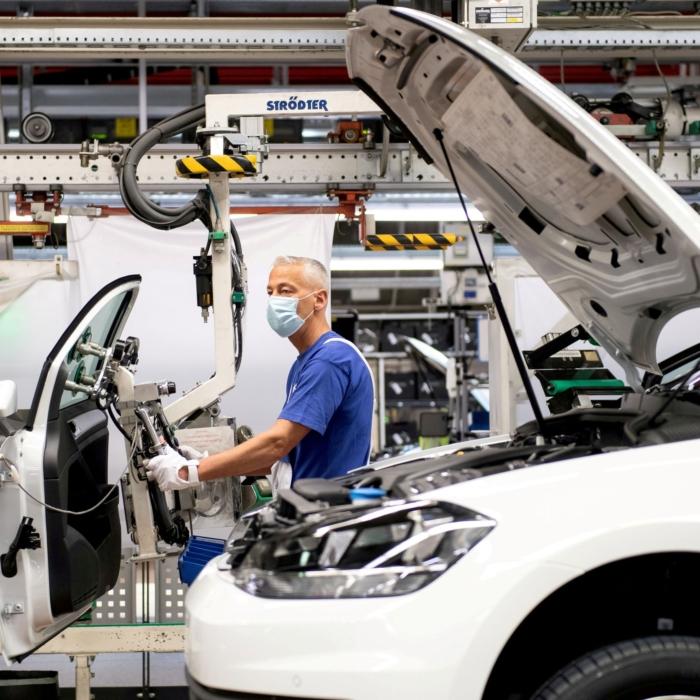Workers at nine Volkswagen car and component plants across Germany have gone on strike as the carmaker navigates the transition to electric cars and Chinese competition.
On Dec. 2, thousands of workers gathered at the Volkswagen headquarters in Wolfsburg to strike over wages and job cuts. The strikes could escalate into 24-hour or unlimited stoppages if a deal is not struck in the next round of wage negotiations.
$11 Billion
Earlier this year, Volkswagen, Germany’s largest industrial employer and Europe’s top carmaker by revenue, said it was targeting $11 billion in savings by 2026 to survive the transition to electric cars amid cheaper Chinese competition. The company also faces significant challenges due to high energy costs.Amid the pressure, it said, it also felt forced to end its job security program, which has been in place since 1994 and prevents job cuts until 2029.
The IG Metall union last week said it had agreed to steps that would save 1.5 billion euros ($1.6 billion), including forgoing bonuses for 2025 and 2026, which Volkswagen dismissed.
Volkswagen has demanded a 10 percent wage cut.
“How long and how intensive this confrontation needs to be is Volkswagen’s responsibility at the negotiating table,” Thorsten Groeger, who leads negotiations on behalf of the IG Metall union, told Reuters.
“This didn’t happen—despite a comprehensive future plan by IG Metall and the Working Council. Now there are warning strikes in response.”
Net Zero Chinese EVs
In June, the German statistics office said that 40.9 percent of all the electric vehicles (EVs) imported in the first four months of the year came from China.Mayer said that Chinese competition is “undermining the industrial model that makes Germany an outlier in the West with 18 percent of the economy in manufacturing, versus 8 [percent to] 10 percent in most of the rest, including the UK.”
“Companies facing global competition, for example, cannot sustain generous job protection programs, agreed when times were good and the efficiency gap with rivals large and sustainable through high levels of capital investment. Nor can they repetitively impose cuts on their efficient international operations when much of the cost and waste is within Germany,” Mayer said.
UK Market
Carmakers have warned that net-zero mandates could force brands to leave the UK market.The company, which also owns the Peugeot, Citroën, Chrysler, and Fiat brands, said on Nov. 26 it would consolidate its UK production of light commercial vehicles at its Ellesmere Port site in northern England, where it is investing 50 million pounds ($63 million) in an all-electric vehicle hub.
It is the latest UK-based automaker to announce cuts, citing weak EV sales and compliance pressures.
Last week, Ford announced 800 job cuts in the UK due to “weaker demand for electric vehicles.”
Nissan also recently warned that jobs at its Sunderland plant, the largest in the UK, could be at risk because of the EV mandate.
“The mandate risks undermining the business case for manufacturing cars in the UK, and the viability of thousands of jobs and billions of pounds in investment,” Nissan said in a statement.
Under the UK’s Zero Emission Vehicle mandate, introduced by the previous Tory government, manufacturers face fines of 15,000 pounds ($19,000) per internal combustion engine vehicle sold beyond the set limits.
This policy is part of the government’s commitment to phasing out internal combustion engine vehicles by 2030 and hybrid cars by 2035.
The Epoch Times contacted Volkswagen for comment but received no reply by publication time.







